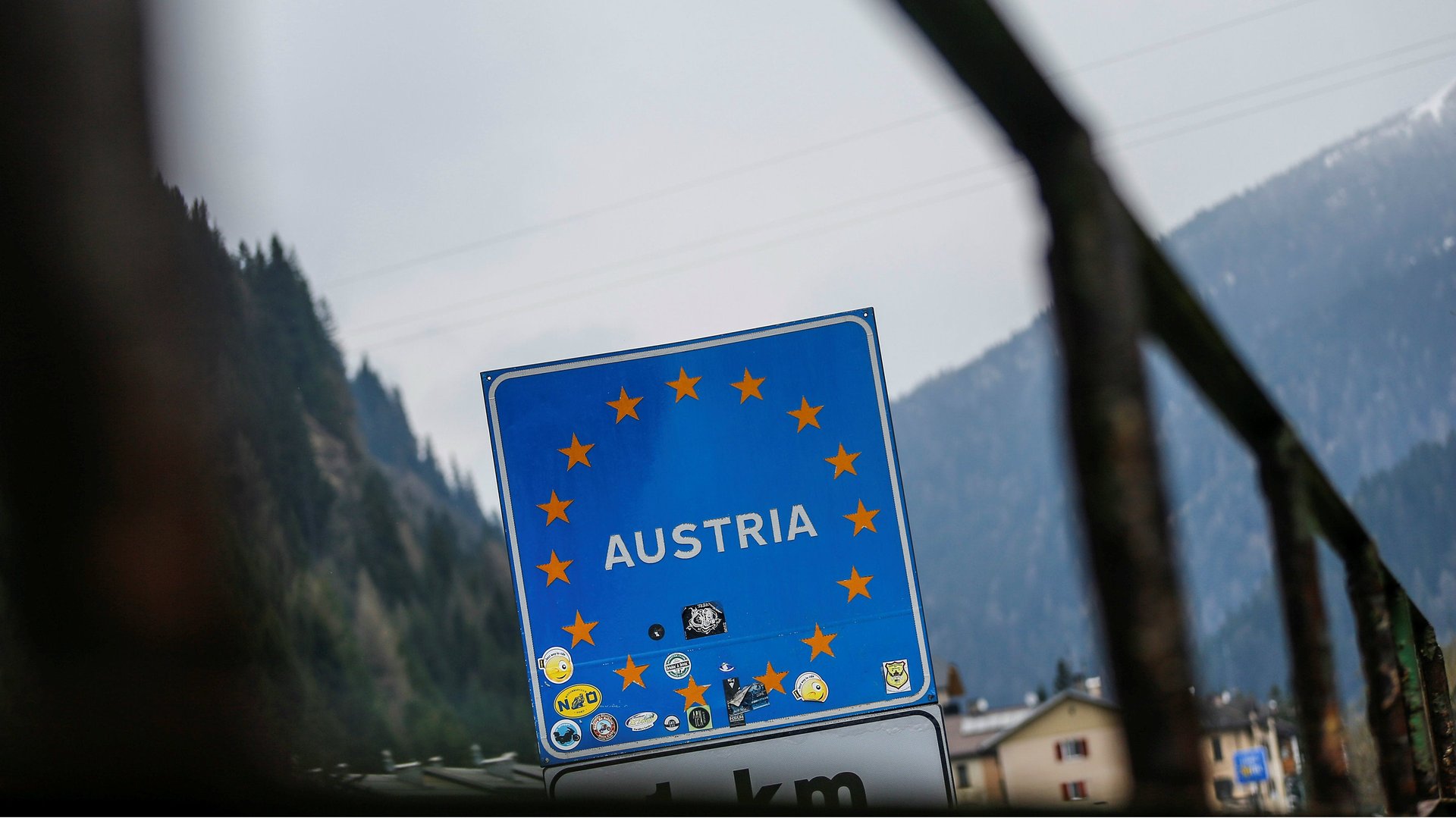Austria’s crackdown on immigration is denting its economy
Faced with a record-breaking refugee crisis over the past year, some European countries have resorted to strict measures to stem the flow of migrants and asylum seekers arriving at their borders.


Faced with a record-breaking refugee crisis over the past year, some European countries have resorted to strict measures to stem the flow of migrants and asylum seekers arriving at their borders.
Austria, in particular, has made it difficult for refugees to enter the country. In February 2016, for example, the country imposed a daily cap on the number of asylum seekers that could enter from its southern border—limiting it to just 80 a day. (In 2015 the country received 90,000 asylum claims, equivalent to 1% of its population.)
In April, a new law was passed that meant most asylum claimants could be rejected directly at the border, and gave the government the power to declare a state of emergency over the refugee crisis.
Austrian officials have also said they are considering building a fence at one of the country’s border crossings with Italy—although Italian prime minister Matteo Renzi opposes the idea. A 4-kilometer (2.5-mile) fence is currently in place at Austria’s border with Slovenia.
Now, these restrictive measures appear to be taking a toll on the nation’s economy. Reuters reports that on Monday (June 6) the Austrian central bank cut its GDP growth forecasts and 2017 by 0.3 percentage points—to 1.6% for 2016 and 1.5% for 2017. The bank says the cap on asylum seekers is partly to blame, in that it will reduce the positive effect that public spending on refugees has on overall growth.
Some previous assessments have pointed to the economic benefits of a more open policy towards migrants. Soon after the height of the refugee crisis in September 2015, it was estimated that the increase in migrants arriving in Germany—which adopts a far more welcoming policy than Austria—would boost the country’s economic growth by 0.25 percentage points this year.
Austria’s policies may yet change. Last month, a dramatic presidential election saw Austria reject the far-right, anti-immigrant candidate Norbert Hofer—but only barely. The newly-elected president, Alexander Van der Bellen, opposes the cap on asylum seekers.